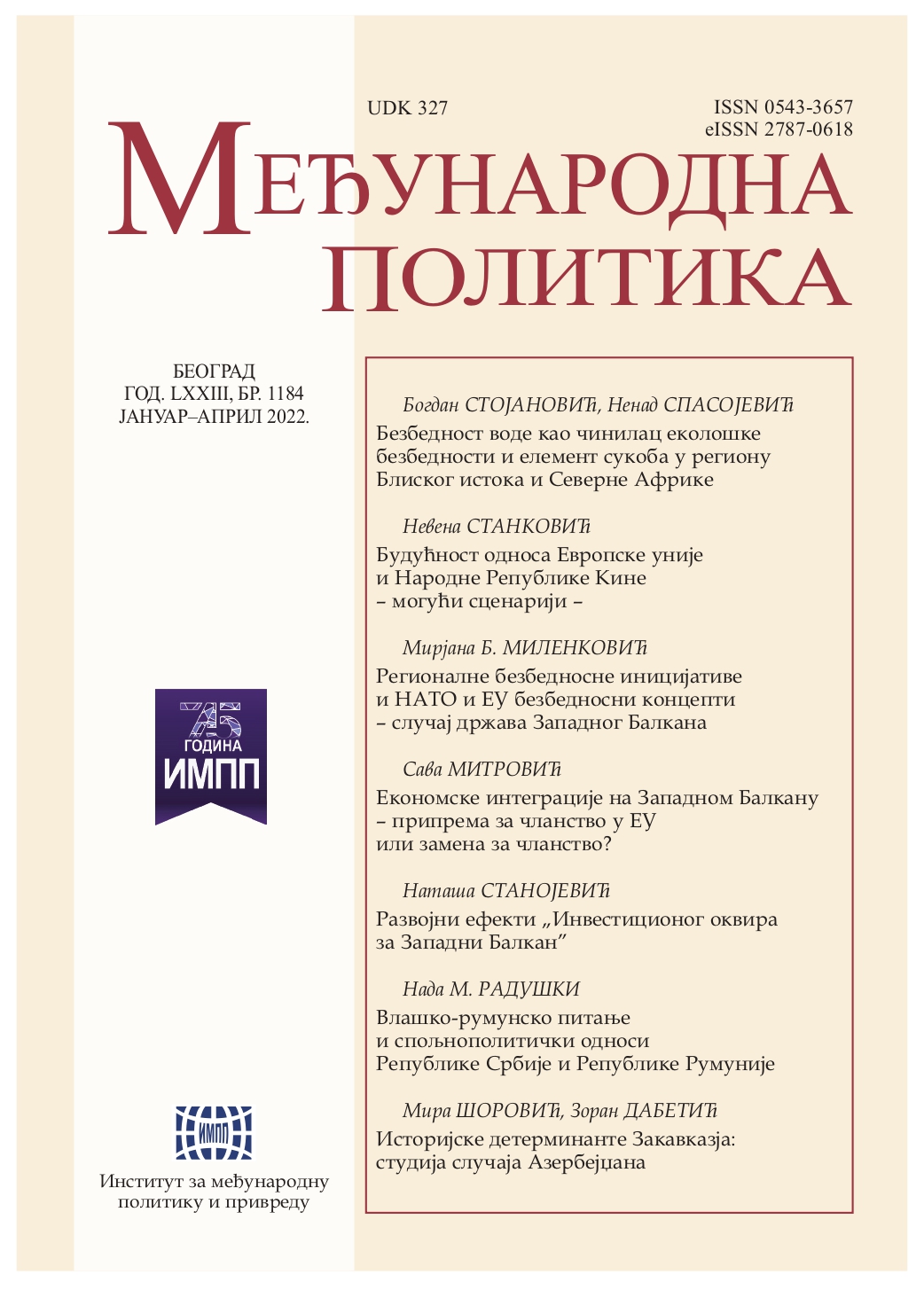Влашко-румунско питање
И спољнополитички односи Републике Србије и Републике Румуније
The Wlach-Romanian issue and foreign policy relations between Serbia and Romania
Author(s): Nada RaduškiSubject(s): Inter-Ethnic Relations
Published by: Институт за међународну политику и привреду
Summary/Abstract: In the traditionally good and stable bilateral relations between Serbia and Romania, the position and protection of the rights of national minorities and the preservation of their ethnocultural identity occupy a special place. In this context, the bilateral agreement from 2002 stands out in importance, which is primarily important for resolving specific interstate issues in the field of minority policy. In the foreign policy relations between Serbia and Romania, the open issues have two most important aspects: the first refers to the status and rights of the Romanian national minority in Serbia, and the second is whether the Vlachs are part of the Romanian nation or an autochthonous national minority with their own identity, language, and culture. The position of Romanians in Serbia, the Vlach-Romanian issue, and bilateral relations with Romania are additionally important for the progress in the process of Serbia's accession to the European Union, bearing in mind that Romania conditions its consent to Serbia’s EU candidate status and the opening of negotiation chapters. Serbia believes that the only way to avoid all misunderstandings and maintain good neighbourly relations is to engage in active and principled interstate dialogue.Stable bilateral relations, successful regional cooperation and the prosperity of each country in the Balkans are conditioned, among other things, by resolving open minority issues and the full realisation of minority rights and freedoms, which lead to the necessary integration of members of national minorities into society, but with the preservation of their ethnic, religious and cultural identity. On the other hand, the position and realisation of the rights of national minorities depend on the democratisation of society, interstate regional relations and good neighbourly cooperation regulated by bilateral agreements, as well as good majority-minority relations in the state, with the active participation of their home countries, but also stable bilateral relations with the states in which they live.For Serbia, having in mind the basic goals and concrete obligations in the process of European integration and EU negotiations, protection of human and minority rights, improvement of position, integration, and preservation of the national identity of Romanian and Vlach minorities, and good neighbourly relations are crucial.
Journal: Међународнa пoлитика
- Issue Year: 73/2022
- Issue No: 1184
- Page Range: 147-169
- Page Count: 23
- Language: Serbian

